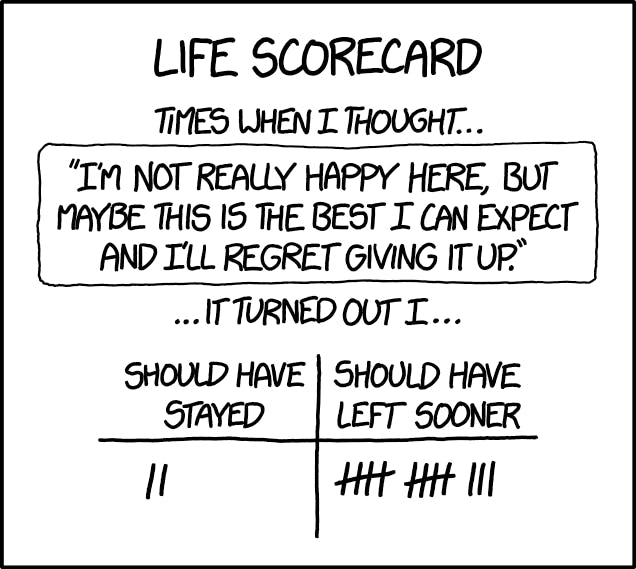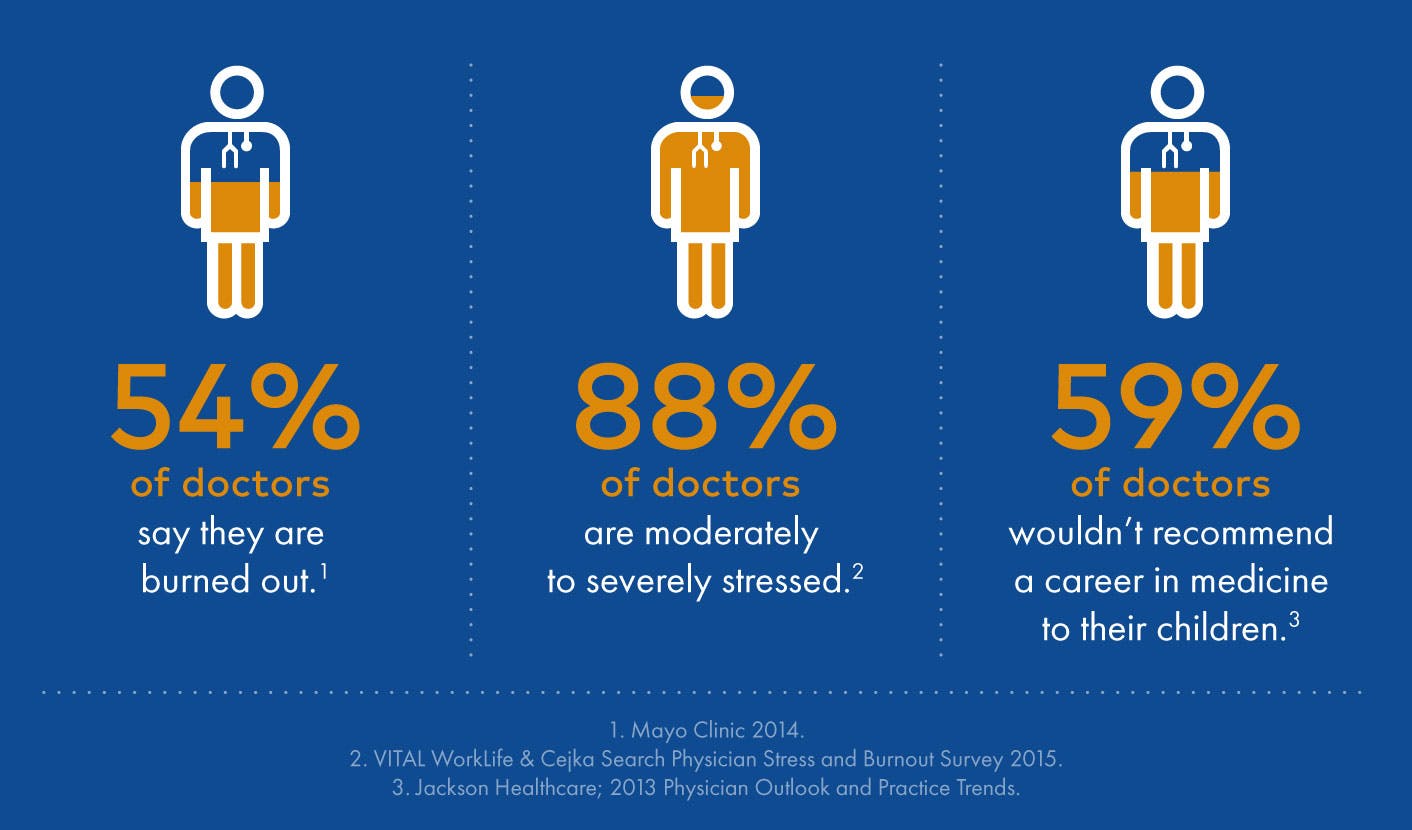
Photo by Jackson Hirsch on Unsplash
Developer or Doctor?
Weighing Career Choices for the Motivated and Lost
What do you want to be?
Does anybody really know what they want to do? Would the “you” from five years ago imagine you’d be doing what you’re doing today? Five years ago, I was one of the motivated and lost—the ones who would identify with a popular career like engineer or doctor and persuade themselves and others that’s what they’d do. Unfortunately, humans are terrible at know what makes them happy. They’re even worse at predicting what will make them happy in five years. They don’t know what they want to be because they don’t know who they are.
Turning 25 today made me thankful that I listened to myself at 20. I had wanted to be a doctor since I was 14 and had already spent two years of college drudging through medical school prerequisites before I finally shadowed one. I remember the moment I walked into the hospital at 7am, passing a family crying in the doorway, going from room to room of patients who weren’t really healing, and quickly realizing that I wasn’t going to be a doctor.
 From XKCD
From XKCD
Why Not a Doctor?
Becoming a doctor is an objectively challenging career that involves significant self-sacrifice. At least eight years of education, residency, hundreds of thousands of dollars in medical school debt, potentially long and irregular work hours, angry patients, and plenty other challenges. Despite these challenges, many of my classmates ended up going to medical school. I always wondered, what motivates them? Maybe it’s about the challenge, constant learning, helping others, mastering a domain, or earning a good salary. After I graduated college, suddenly I had to somehow find a job that would provide me some of the same benefits that had motivated me to become a doctor.
 From Athenahealth
From Athenahealth
Why Not a Developer?
After graduating in 2020, I struggled to find a job related to my public health degree and I began looking at other careers. I remembered when I was around 11, I wanted to become a programmer. My programmer cousin gifted me a Java textbook, but I didn’t quite have the attention span to get past learning about variables. I gave it more thought and realized that programming offered exactly what I had wanted in becoming a doctor: constant learning, a challenge, a sustainable salary, and a chance to master a specific domain.
Unlike doctors, developers have flexibility. They can work from anywhere, switch domains, specialize in whatever framework or language they want and switch between purely technical and developer relations work. I found out about a program called Apprenti that offers an apprenticeship model for those wanting to break into tech. Their program placed me with an employer even before I started the training. The employer took a chance on me, and my tech career suddenly began.
Two Years After
After two years, I haven’t ever regretted becoming a programmer. There were certainly times when I doubted myself while looking at architecture diagrams I didn’t understand or feature stories I didn’t know how to build. However, with every feature built and bug solved, I began to feel like I know my own capabilities and where I could go. Even though I didn’t end up working in healthcare, the values that were important to me carried into my new career. I hope anyone else deciding on their own career doesn’t just think about their values, but the responsibilities they’ll have to accept as well. If you have any questions about software development feel free to reach out!
You can reach out to me on Twitter (@jahabeebs)
